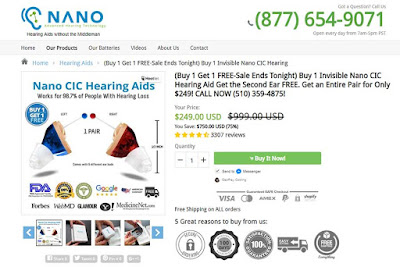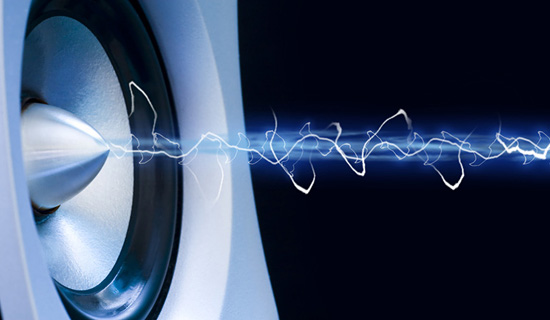Lend Your Ears - Hearing Aid Donation Guide
Did you know that you can donate a used hearing aid? It is a form of recycling, thus, saving the environment and it could help a lot of people who are unable to afford the preventative care necessary to avoid hearing loss, or hearing aids to enhance their hearing.
At first, you would think why would you just donate an old one, unless you are willing to donate money to hearing aid organizations, donating used ones would help approximately millions of people with hearing loss not only in the US but all over the world -- with organizations helping not only older age brackets but also infants and young ones who have hearing impairments.
These days, the coverage for treatment and hearing aids is limited or non-existent with health insurance programs. Hearing aids usually cost an average of $1000 to $6800 per ear and can only be replaced for a certain period of time, restricting the patient’s choices to accept a large uninsured or unplanned extra bill or stop treatment completely.
Remember that a hearing aid that is no longer being used can make a big exception in someone else’s life – someone who could not afford a hearing aid without your donation.
So if in case you are still not convinced, a study was done by the World Health Organization in 2008, hearing impairment and deafness are pressing disabilities that can inflict heavy social and economic responsibilities on individuals, families, communities, and countries.
Adults who are hard of hearing often experience difficulty in acquiring and keeping employment while children with hearing impairment oftentimes experience delayed development of language and speech skills, which may result in delayed learning and difficulty in school.
Where to donate your old hearing aids?
In the case of children assistance, the organization of the Center for Hearing and Speech dedicates its means and hearing aid donations to support newborns and children who bear from hearing impairments. This org accepts all makes and models, and the devices that children can’t wear such as the in-the-ear type are applied for credit towards the purchase of loaner aids.
A project funded by the Rotary International Foundation focuses on providing repaired and refurbished hearing aids to recipients who live in Argentina, Honduras, and the Philippines. This project is called Help the Children.
Furthermore, the team from the Flying Doctors of Mercy gives used hearing aids to children in Mexico. These schemes from the aforementioned teams are intended to address children’s hearing impairment problems at their earliest developmental stages and equip them with new possibilities to improve their lives.
Meanwhile, The Lions Club International collects hearing aids and send them to regional Lions Hearing Aid Recycling Centers. The centers use donated hearing aids in different ways such as partnering with associating hearing care professionals who refurbish donated hearing aids to suit the individual needs of the recipient and donate hearing aids to participating manufacturers who issue a credit to the Lions for all useful parts. This credit value is then utilized towards the acquisition of new hearing aids for persons who have inadequate ability to pay.
You can also donate used hearing aids to the Hearing Charities of America as they supply resources on a regular basis to many on the lookout of hearing aids who cannot afford them.
In this, you can help fathers, mother, kids or just families who are in a financial obstacle but wanting to acquire hearing aids for the hearing impairments of their loved ones. They created the National Hearing Aid Project to uphold their belief that healthy hearing should be enjoyed by all, notwithstanding of income.
They believe that hearing aids (new and used) can make all the difference in someone’s personal and professional life, and allow them to better interact with the community they get with every waking day. In donating to this project, through used hearing aid or through monetary means, you can help children excel in school by helping them hear their teachers.
It could also help those who want to gain employment or secure a higher paying position. Donating used hearing aids can not only give people the gift of sound but also provide them with a much better chance to improve their quality of life. Check the Video Below:
These are the foundation where you can donate your used hearing aids. There’s also an option from the Miracle-Ear Foundation. However, it only accepts the Miracle-Ear brand hearing aids. Donations to Miracle-Ear may also be tax-deductible.
Audicus Hearing Aids takes a look at several hearing aid donation and recycling programs that will gladly receive your hearing aids and assist you in the process of upgrading or renewing your used hearing aids. You can change the world one pair at a time with refurbished hearing aids.
The Starkey Hearing Foundation also established hearing aids recycling program established in the United States dubbed as Your Hearing Aid Donation Allows Others to Hear. This program provides renewed hearing aids to people with hearing loss, adults or children residing in the U.S. Hear Now accepts any model either used or unwanted.
Hear Now recipients also receive hearing treatments thanks to the program’s partnership with hearing healthcare providers across the country. With this, in case you have thought of having a good heart to donate old hearing aids, your donation is tax-deductible (they will send you a letter of acknowledgment upon receipt).
Other service institutions such as the Sertoma via SHARP (Sertoma Hearing Aids Recycling Program) and the Knights of Columbus collect hearing aids donations. These are restored before being distributed to those who are deaf or hard of hearing.
What are you going to do with your hearing aid batteries?
Perversely, batteries can't be donated the way used hearing aids can—once a battery is used up, there's really nothing left to give. But you can either toss hearing aid batteries in the trash once they are finished this kind of all depends on what kind of battery you’re using.
If your hearing aid uses a zinc battery (most hearing aids use these), the best option is to reuse them instead of throwing them in the garbage. You do not want to be an environmental snitch because Zinc and other metals in the batteries can leach out while sitting in a landfill, causing harm to the environment.
Recycling centers will separate the metals and reuse them while getting rid of the disposable parts. Other good news is, you can also send your batteries to Audicus, and we will dispose of them for you properly.
Some hearing aid batteries contain mercury while others don’t. Mercury-free batteries will state on the packaging that they don’t contain mercury. Batteries that state “mercury-free” on the label are safe to throw away with the rest of your household garbage. However, when it comes time to dispose of your batteries that contain mercury, you should seek out a recycling center that accepts mercury batteries and they will safely recycle them.
How do you know if it is time to donate your hearing aids?
If you’ve recently gotten new hearing aids you may be looking for a good way to dispose of your old ones. Consider donating your used hearing aids to someone who may not be able to afford new devices. The first part clearly says that hearing aids are surely expensive with battery costs ranging from $30 to $150 a year, according to AARP.
While some insurance companies cover hearing aids, there are plenty of uninsured or underinsured adults who may benefit from your donation. Or you could also check with your audiologist to see if there is a program that he or she partners with directly in case you thought of donating your old hearing aid.
Looking into acquiring a donated hearing aid?
Well first, you have to keep your old hearing aid for just for backup since it could take a while for your ears to adjust into a refurbished one. There are many things to take into consideration when getting a new hearing aid.
It is not that easy but you need to carefully review it carefully to make sure it works properly and is comfortable to wear. It is also safe to say that hearing aids you may acquire from the above-mentioned organizations have been refurbished and are as clean and sanitary as brand new ones.
In line with this, if you receive donated hearing aids, be sure to take them to an audiologist. Your doctor will monitor the hearing aids to make sure they’re fit for use and then program them for your needs and adjust them for comfortable use.
Your doctor will conclude your type of hearing loss and what changes or adjustments need to be made to the best hearing aids to suit your needs. This may require a few visits, so you need to bring some patience with you as you try different approaches.
Final thoughts:
Old accessories and gadgets turn into industrial wastes later on. Donating a used hearing aid can still go a long way after reconditioning. Organizations which are accepting these hearing aids are also hearing aid experts and can still refurbish these so those who cannot afford to buy a new one can also benefit from it. All in all, if you are a donor, without any super skills, old hearing aids are all you need to make a difference in someone else’s life.



Comments
Post a Comment